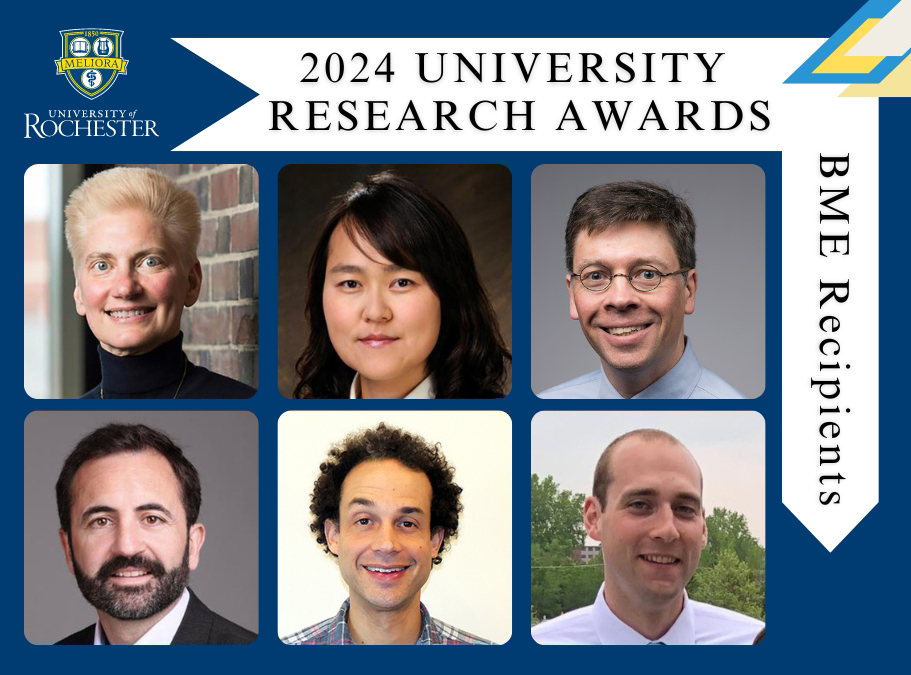BME Professors Receive 2024 University Research Awards

Last week, the Office of the Vice President for Research announced seven Hajim School researchers will receive 2024 University Research Awards (URA).
These are awarded to recipients who demonstrate how their projects will provide impact in their research areas, with a high probability of being leveraged by future external funding.
We are very pleased to announce that the Department of Biomedical Engineering had six URA recipients:
- Diane Dalecki, Kevin J. Parker Distinguished Professor in Biomedical Engineering
Characterization of Tissue Microstructure using Quantitative Ultrasound
Collaborators: Ajay Anand, Institute for Data Science; David Mitten, Orthopaedics; Nicole Wilson, Surgery; Sara Wayson, Surgery; Jeff Lillie, Orthopaedics - Regine Choe, Associate Professor of Biomedical Engineering and Electrical & Computer Engineering
& Steve McAleavey, Associate Professor of Biomedical Engineering and Electrical & Computer Engineering, Chair of Biomedical Engineering
Development of Integrated Diffuse Optical and Ultrasound Imaging System for Breast Cancer Therapy
Collaborators: Ajay Dhakal, Medicine - Ed Lalor, Associate Professor of Biomedical Engineering
The Neural Mechanisms of Everyday Speech Processing and Interpersonal Communication in Neurotypical and Autistic Individuals
Collaborators: Elise Piazza, Department of Brain & Cognitive Sciences; Emily Knight, Department of Pediatrics - Mark Buckley, Associate Professor of Biomedical Engineering
Towards Prevention of Accidental Trauma to Tissues By Surgical Tools - Jared Mereness, Senior Scientist in Biomedical Engineering
Lung Microbubble Chips for Antifibrotic Drug Discovery
Collaborators: Lisa DeLouise, Dermatology; Gloria Pryhuber, Pediatrics
The principal aim of the University Research Award (URA) program is to provide seed money to enable the development of new, innovative research projects with a high probability of attracting external support in the short term. Proposals that seek to establish or further develop new collaborations and multidisciplinary research teams will be favorably received. Recipients of a URA are expected to show that they have applied for external funding within 18 months of the end of their URA project period.
Related Links...
- University Research Awards (URA)
- Hajim Highlights - email 0603
- BME Department's social media accounts:
